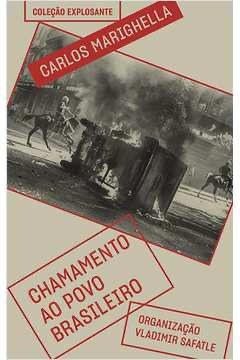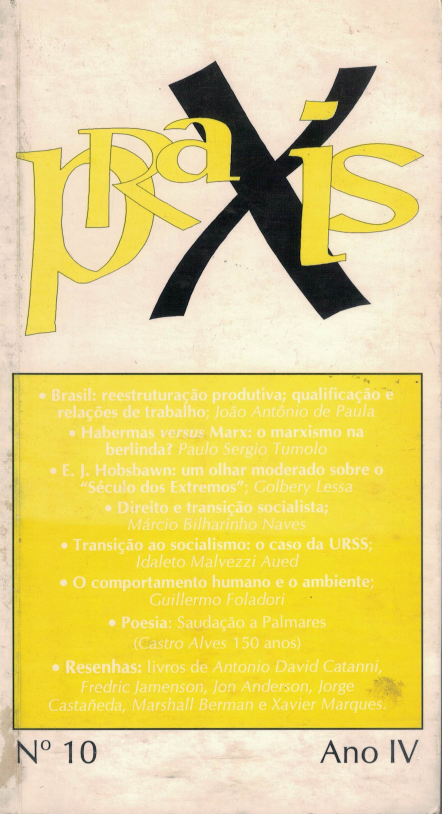Call to the Brazilian People and Other Writings. SAFATLE, Vladimir (org). Sao Paulo: Ubu, 2019
Abstract
“All historical work decomposes past time, chooses between its chronological realities, according to more or less conscious exclusive preferences” (BRAUDEL, 2014, p. 44). This premise enunciated by Fernand Braudel is essential to understand the limitations of reconstructing a historical narrative of an event and/or character. These insufficiencies are due to the chronological, thematic and methodological cut that the historian chooses, guided by his perception of the totality of the theme.
Keeping this analytical prism in mind, Vladimir Safatle selected some texts by Carlos Marighella to compose the book “Chamamento ao Povo Brasileiro e Outros Escritos” (SAFATLE [Org], 2019). This choice demonstrates, following Braudel's thought, what is the conception about the communist militant exposed in the work. The question that remains, therefore, is: what are the traits highlighted by Safatle and for what reasons does the thinker emphasize them?
References
BOURDIEU, Pierre. A Ilusão Biográfica. In: FERREIRA, Marieta de Moraes. Usos e Abusos da História Oral. Rio de Janeiro: Fundação Getúlio Vargas, 1996.
BRAUDEL, Fernand. Escritos Sobre a História. 3 ed. São Paulo: Perspectiva, 2014.
MAGALHÃES, Mário. Marighella: O Guerrilheiro Que Incendiou o Mundo. São Paulo: Companhia das Letras, 2012.
MARIGHELLA, Carlos. Mini manual do Guerrilheiro Urbano. São Paulo: 1969.
MARIGHELLA, Carlos. Por que Resisti à Prisão? Rio de Janeiro: Brasiliense, 1994.
NOVA, Cristiane; NÓVOA, Jorge. Carlos Marighella: O Homem Por Trás do Mito. São Paulo: Unesp, 1999.
RIDENTI, Marcelo. O Fantasma da Revolução Brasileira. 2 ed. São Paulo: Unesp, 2010.

Downloads
Published
How to Cite
Issue
Section
License
Authors who publish in Revista Mouro agree to the following terms:
The. Authors retain copyright and grant Revista Mouro the right to publish.
B. Authors are authorized to assume additional contracts separately, for non-exclusive distribution of the version of the work published in this publication (eg, to publish in an institutional repository or as a book chapter), with acknowledgment of authorship and publication in Revista Mouro.
ç. Authors are allowed and encouraged to publish and distribute their work online (e.g. in institutional repositories or on their personal page) at any point before or during the editorial process, as this can generate productive changes as well as increase impact and the citation of the published work.





